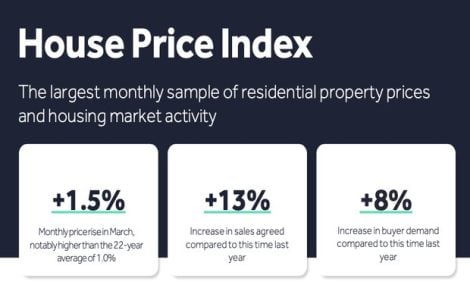The new-look DLUHC
Timothy Douglas asks how the new appointments at the Department for Levelling Up, Housing and Communities, will affect the outlook for agents.


The day-to-day housing brief has been placed in the hands of Lee Rowley and Andrew Stephenson – and it is their arrival that may raise hopes among agents.

Rowley has spoken in Parliament about his time working for an estate agency and the need to speed up the building of homes following planning approval, and ex-landlord Andrew Stephenson’s voting record shows him to be on their side. It remains to be seen what significance this will have for the renters’ reform, which is still being talked up in political circles as a priority for the new-look UK Government.
Add in The Chancellor’s revision to stamp duty thresholds as an intended shot in the arm for the sales market and on the face of it makes for a positive first month for the property sector under the new political administration.
New Prime Minister Liz Truss appears committed to the levelling-up agenda, but concerns remain.
It has however not escaped notice that there seems to have been a quiet reorganisation of the department under its latest Secretary of State, Simon Clarke. Perhaps most significantly is that the lead role of housing minister no longer afforded the senior title of Minister of State. Clarke’s new structure has Paul Scully as a more strategic Minister of State, overseeing a team of five more junior ranking Parliamentary Under- Secretary of States, including Rowley and Stevenson.
Propertymark poll
How consequential this new structure will prove to be for how DLUHC does things politically and its priorities, is uncertain. For the avoidance of doubt over what the property profession considers those priorities to be, Propertymark carried out an online poll.
Stimulating housing supply came out top, with 51% of the vote, followed by a focus on making existing homes more energy efficient (19%), getting on with the reform of the private rented sector (16%) and progressing RoPA (15%).
New Prime Minister Liz Truss appears committed to the levelling up agenda, but concerns remain among our commercial agent members about the practicalities of enforced ‘auctions’ of empty high street properties with no set criteria — one of the flagship elements of the white paper to breathe new life into high streets.
DLUHC aside, the property sector will need support from across government, particularly with policies that can incentivise more landlords, as housing providers, to invest in the under-strain private rented sector, something former landlord Stephenson may understand better. A review of LHA rates would help to level the playing field for renters on low incomes; more financial support to enable the retrofitting of all homes to make them more energy efficient is key to addressing the energy crisis; and ongoing general business support will be necessary for agencies themselves, in particular, help with their energy bills beyond the current six-month package recently announced.
The in-trays across Whitehall will be overflowing after a summer hiatus, and how quickly the new teams can get to grips with them is perhaps reliant on how long they can hold onto their jobs before, and after, the current Parliament’s five-year term ends in December 2024.
Timothy Douglas is Head of Policy and Campaigns for Propertymark.





